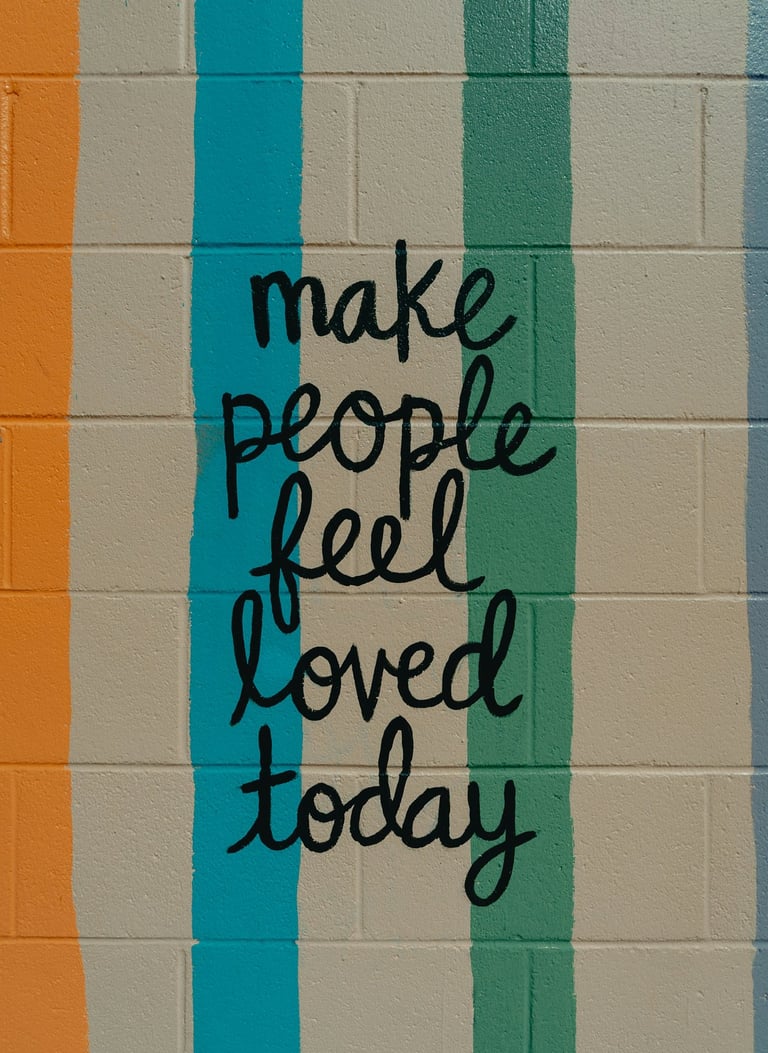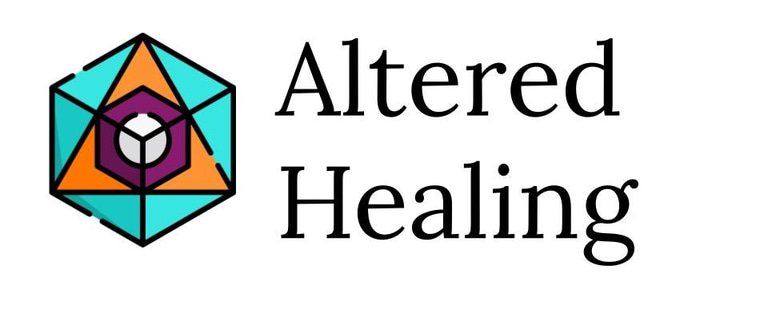How Judgments Shut Down Connection
Judgment, whether directed inwardly or outwardly, tends to shut down connection and understanding.
11/1/20245 min read
I was recently at an event where we were asked to do a listening exercise, we were asked to speak about something real happening in our lives and our partner was asked to listen in three different ways. The first time, to listen with the mind set to fix the problem, the second time, to listen with judgement and finally the third time, to listen as if the person speaking was the most amazing person they had ever met. It was interesting to notice my reactions to these shifts. The most impactful was when my partner listened with judgement. These were all body language cues, she squinted her brows or made a sour face. I found it so incredibly difficult to continue to speak. My thought was 'Well if you don't believe me why should I keep speaking?'. She handled her role wonderfully and it made me wonder, the true impact judging can have.
We’ve all felt it, both in how we judge ourselves and in how we perceive others judging us. Judgment is often subtle, sneaking in through the cracks of our daily interactions, yet its effects can be deeply isolating. Judgment, whether directed inwardly or outwardly, tends to shut down connection and understanding. It’s a barrier that keeps us at arm’s length from others, even if we don’t realize it.
Why We Judge—and How It Hurts Us
Humans are hardwired to make quick assessments. Our ancestors used this ability to stay safe in dangerous situations, and while these instincts still serve us in certain ways, they often lead to harsh judgments that disconnect us. Research supports that the act of judging others (or ourselves) triggers the brain’s “threat response,” activating the amygdala, the brain’s emotional alarm system. This shift pulls us out of empathy and into a “fight or flight” mentality. When we judge, we can become defensive, critical, or disengaged—all states that inhibit connection.
A study by the psychologist Kristin Neff, a pioneer in self-compassion research, found that self-judgment activates similar stress responses in the brain as when we experience physical pain. This means that judging ourselves can be just as painful and disruptive as feeling judged by others. When we criticize ourselves, it not only increases our stress levels but also reduces our ability to empathize, since self-compassion and judgment rarely coexist.
The Effects of Judging Others
When we judge others, it can create a strong sense of separation. Imagine meeting someone for the first time and forming an instant opinion—positive or negative—about their personality, appearance, or behavior. That judgment becomes a filter through which you view everything they do, limiting the openness needed for genuine connection. Perhaps you think, “This person is too reserved,” or “They seem superficial.” These judgments act as mental walls, preventing us from seeing beyond our preconceived notions and appreciating who that person truly is.
This dynamic is why judgment can be so damaging in relationships. If we judge our partner’s actions or a friend’s choices, it’s challenging to stay open to their perspective. We can end up building narratives about who they are, boxing them into our assumptions. And over time, these judgments accumulate, contributing to misunderstandings and emotional distance.
Judging Ourselves—The Double-Edged Sword
Self-judgment is equally limiting, if not more so. Many people believe that being hard on themselves will somehow motivate them to do better or avoid making mistakes. However, research from the field of positive psychology suggests the opposite. Studies show that self-criticism is correlated with increased anxiety and decreased resilience, which can make it harder to recover from setbacks.
Self-judgment often takes the form of comparing ourselves to others, thinking we’re not good enough, or focusing on our perceived shortcomings. This inner dialogue not only makes us feel isolated but also can make us more likely to judge others as a way of deflecting or coping with our own feelings of inadequacy. It’s a cycle that feeds itself, widening the gap between us and others.


We Can Reduce Judgment and Build Connection
The good news is that with awareness and practice, we can break free from the habit of judging ourselves and others. Here are some techniques that can help for cultivating a more open, compassionate perspective:
1. Mindful Awareness of Judgments
One powerful approach is to start observing your thoughts and recognizing when judgment arises. You might notice yourself labeling people or mentally criticizing your own actions. Instead of reacting, just observe these thoughts with curiosity. This practice, called “mindful awareness,” allows us to acknowledge judgments without attaching to them. When we can see our judgments objectively, they lose their grip on us, and we can shift to a more understanding mindset.
2. Self-Compassion Practice
Self-compassion, a technique developed and researched extensively by Dr. Kristin Neff, involves treating ourselves with kindness rather than judgment. When you make a mistake or face a challenge, try speaking to yourself as you would a good friend. Remind yourself that everyone makes mistakes, and focus on encouraging words. Practicing self-compassion strengthens our resilience and makes it easier to be compassionate toward others, fostering a deeper sense of connection and understanding.
3. Practicing Empathy
When you notice judgment towards others, take a moment to consider what they might be going through. Perhaps they’re facing a challenge or dealing with something difficult. Imagining another person’s struggles can help us feel more empathy and see them in a more compassionate light. This isn’t about excusing harmful behavior; rather, it’s about moving from a place of judgment to a place of understanding.
4. Focus on Shared Humanity
A significant part of reducing judgment involves seeing ourselves as interconnected. We all have flaws, strengths, fears, and hopes. When we acknowledge this shared humanity, it becomes easier to let go of judgment and embrace acceptance. You might try affirmations like, “Just like me, this person wants to be happy,” or “Just like me, they’re dealing with struggles.” This practice reminds us that we’re not alone in our experiences, creating a sense of connection that goes beyond judgment.
Replacing Judgment with Curiosity
An approach I encourage is to replace judgment with curiosity. When we’re curious, we’re open to learning and understanding, rather than closing ourselves off with preconceived notions. For example, if someone says something that initially triggers judgment, pause and ask yourself questions like, “I wonder why they think that?” or “What’s their perspective?” This practice helps to open lines of communication and deepen connections, fostering a sense of trust and empathy.
Moving Toward a More Connected Life
By becoming aware of our judgments and practicing compassion, we can break down the walls that keep us disconnected. It’s a journey, not a destination—releasing judgment is a practice we revisit regularly. But with each step, we gain a bit more understanding, compassion, and closeness with others. We start to see that everyone, including ourselves, is doing their best. The more we practice acceptance over judgment, the more we find ourselves experiencing the richness of genuine connection. And in a world that often feels divided, that sense of closeness and understanding can make a meaningful difference, both in our relationships and in our own sense of inner peace.
Contact
info@alteredhealing.com
902 333 7000
Halifax (Kjipuktuk), Nova Scotia (Sipekne'katik), Canada
